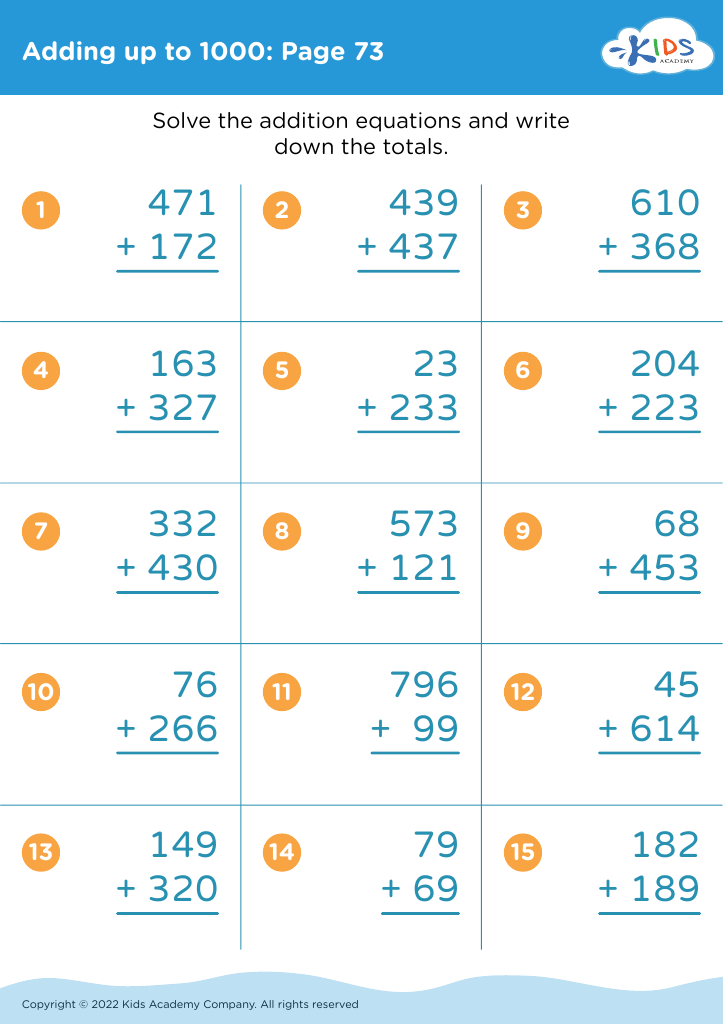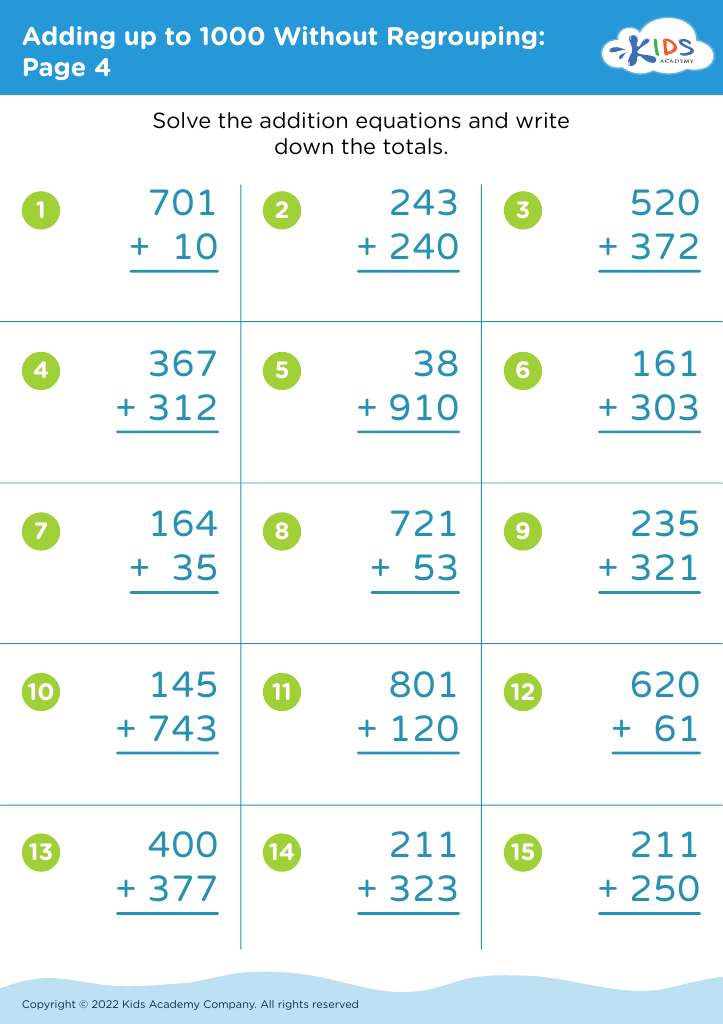Vocabulary expansion Adding up to 1000 Worksheets for Ages 4-9
4 filtered results
-
From - To
Unlock the power of language with our "Vocabulary Expansion: Adding Up to 1000 Worksheets" designed for ages 4-9. This collection of 1000 engaging worksheets enhances young learners' vocabulary while making math fun and accessible. Each worksheet introduces new words and concepts through captivating visuals and relatable scenarios, helping children grasp essential mathematical terminology. Our age-appropriate activities foster a love for learning, allowing kids to explore language in a supportive environment. Ideal for home or classroom use, these worksheets encourage independent exploration and reinforce essential skills. Dive into our resource today and watch your child's confidence and vocabulary soar!
Expanding vocabulary in children aged 4-9 is crucial for their overall development and success in language acquisition. At this age, children are rapidly absorbing information, and a rich vocabulary significantly enhances their ability to communicate effectively. When parents and teachers prioritize vocabulary expansion, children gain the tools they need to articulate thoughts, express emotions, and engage in conversations.
A broader vocabulary supports literacy skills, making reading and comprehension easier. As children encounter new words in books, they can make connections that deepen their understanding of texts. This not only fosters a love for reading but also enhances analytical skills, enabling them to critically interpret information.
Moreover, building vocabulary at an early age contributes to emotional intelligence. When children can articulate their feelings and thoughts more precisely, they are better equipped to socialize, collaborate with peers, and resolve conflicts.
In the long term, a robust vocabulary lays the foundation for academic success. It helps in various subjects, including math and science, where specific terminology is essential.
By actively engaging in vocabulary-building activities—such as reading together, playing word games, and encouraging curiosity—parents and teachers can empower children to develop strong communication skills that will serve them throughout their lives.
















